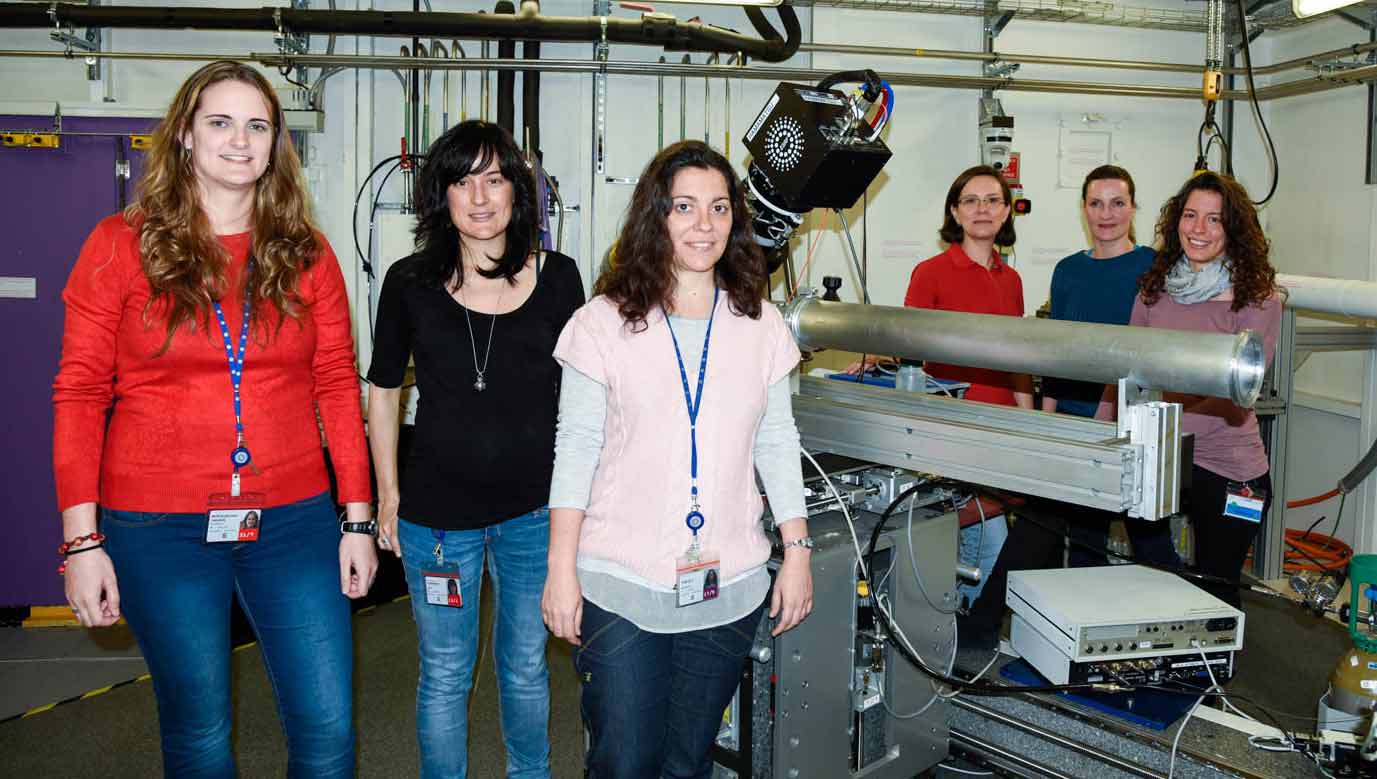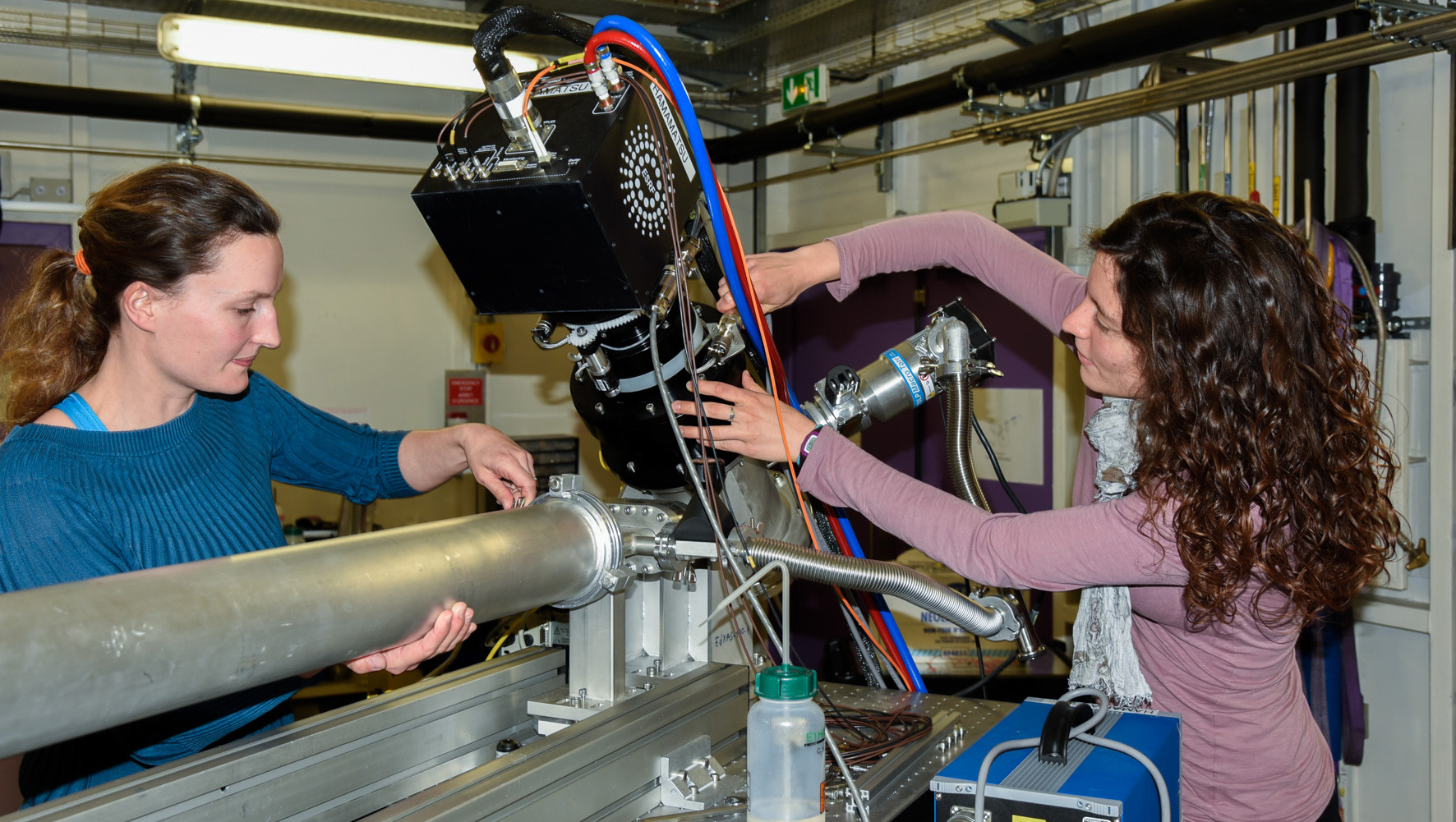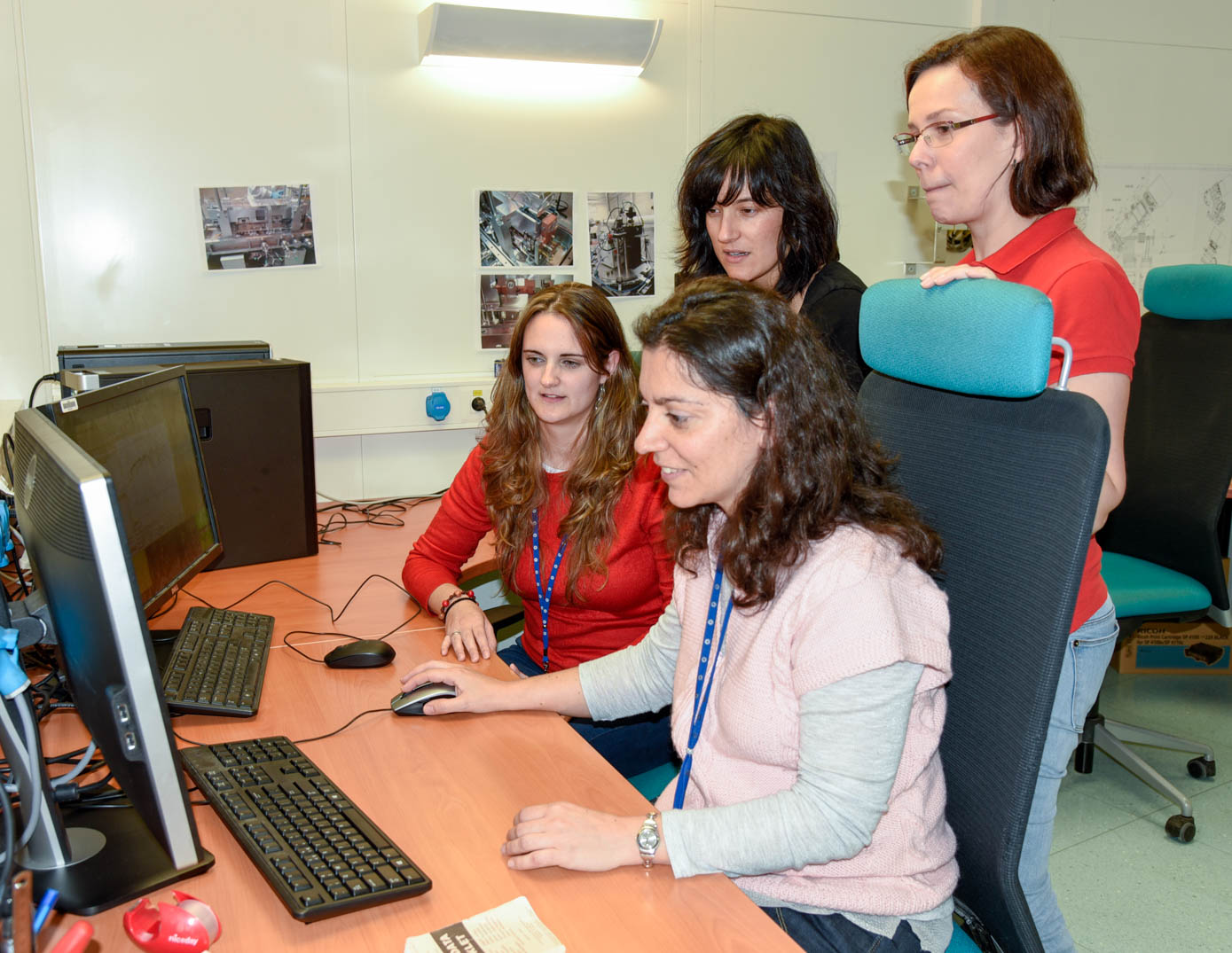- Home
- News
- General News
- Being a woman in...
Being a woman in science
10-02-2017
In the framework of the UNESCO International Day of Women and Girls in Science, the ESRF has talked to six women scientists who decided, not too long ago, that science was their passion.
“I've always been an outdoor person. Being in nature made me ask myself questions such as when and how different kinds of rocks have formed. I wanted to understand and learn about our planet”. These are the words of Angelika Rosa, a post-doctoral geologist specialised in Earth chemistry. Her attraction to science stemmed from her curiosity of the world around her. Equally, Silvia Boccato, a PhD student, feels that “with physics you can explain everything that happens in the world”.
It is not just this almost poetical approach to science that pushes young women to do science. Sometimes, the influence of a passionate science teacher or a thrilling science course in high school can be the trigger. Virginia Monteseguro, a post-doctoral physicist, was a member of her high school astronomy club, as astronomy is big in her native Canary Islands. Débora Meira, a chemical engineer post-doc, discovered her vocation through a chemistry course in secondary school.
 |
|
The six scientists on the beamline ID24. Credits: c. Argoud. |
So what is the reality of life as a scientist? Is science still their passion or has the enthusiasm faded with time? The six women interviewed are mostly in their early 30s and have already experienced what it is like to work in a scientific environment. They work together on the same beamlines dedicated to extreme matter, ID24 and BM23, but their backgrounds go from physicist to engineer and geologist. They all report to the scientist in charge of these beamlines, another woman, Sakura Pascarelli.
An unconventional job
The scientific challenges present in a place like the ESRF have made them, if anything, even keener in their research. “For me the first months were very intense, but in a good way, because you face many new situations, like aligning a beamline, interacting with many researchers of different fields and learning about new techniques and experimental approaches. I really like the fact that you learn something new almost every day”, explains Angelika Rosa.
 |
||
|
ANGELIKA ROSA (left) 33 years old German PhD in mineral physics Post-doctoral researcher at ID24 and BM23. She studies deep Earth chemistry and how important elements for industry or for Earth Sciences, like nickel, for example, get transported inside the deep Earth. “I like to optimize experimental setups including beamline optics, face new experimental and scientific challenges and I put a lot of effort into an experiment until it works out.” |
SILVIA BOCCATO (right) 27 years old Italian PhD student at the ESRF and University Grenoble Alpes (Grenoble, France). She studies the local structure of liquid 3d metals under extreme conditions of pressure and temperature. “Everything is governed by the laws of physics and that's the reason I am doing this job.” |
|
Experiments can be completely successful, or partially or even sometimes they don't work out. There are a lot of variables that can determine the outcome of an experiment: preparing the scientific case, sorting out the instrumental part of it, then carrying out the experiment, looking at the data and being able to make sense of it. “I easily get excited”, explains Angelika Rosa, “but sometimes you also have to deal with frustrations when things don't work, but this is science: you put a lot of yourself into it.” The euphoric state experienced when things go well is Monteseguro’s best part of the job: “When everything goes well and you get good results, it feels like an adrenaline shot.”
The user aspect of the facility is also very different from any previous institute where the scientists may have worked before. At the ESRF scientists assist researchers from all over the world in their experiments. “I like the fact that we help them to find answers to their scientific problems. Answers that cannot be solved in any other way”, explains Débora Meira. Raffaella Torchio, scientist, agrees that their role is crucial in the experiments: “I find it very interesting that when we work as local contact we are the experts that help the users make their experiments be successful.
 |
|||
|
V. MONTESEGURO (bottom left) 31 years old Spanish PhD in Physics Post-doctoral researcher at ID24 and BM23. She studies the structural, electronic, elastic and vibrational properties of rare earth doped materials and nano-materials at extreme conditions of pressure and temperature for optical applications. “When everything goes well it feels like an adrenaline shot.” |
R. TORCHIO (bottom right) 38 years old Italian PhD in Physics Scientist on ID24 and BM23. She started working in the field of magnetism at high pressure, but is now developing dynamic high pressure experiments using lasers. ”We have a great responsibility towards the users. We are the experts at the ESRF and we need to make everything possible so that their experiment is successful.”
|
V. CUARTERO (top left) 32 years old Spanish PhD in Physics Post-doctoral researcher at ID24 and BM23. She studies magnetic materials with electrical properties coupled with the magnetism of the material itself, with potential applications of storage and spintronics. “After the effort of preparing the scientific case, etc. before an experiment, when you finish it and look at the data and you are able to understand it… it is very satisfying”. |
D. MEIRA (top right) 32 years old Brazilian PhD in Chemical Engineering Post-doctoral researcher at ID24 and BM23. She specialises in heterogeneous catalysis (synthesis, characterization and catalytic testing of catalysts), in situ X-ray techniques, and instrumentation development for catalysts characterization using synchrotron radiation. “I want to work for science, to do something that is useful to improve our lives.” |
Does being a woman change anything in the workplace? Not for these researchers so far. Silvia Boccato states “I never had any problem in being a woman and doing science. As a matter of fact, for me it has always been natural (in my family even my grandmother graduated in mathematics) and I think that it shouldn't be an issue”. However, Vera Cuartero, post doctoral physicist, points out that “the reality is that if you look at the heads of group and heads of beamline, they are mostly men. Today half of physics students are women, so I am curious to see what happens in 10 or 20 years’ time.” Raffaella Torchio adds, that “this group is special. In the group, the proportion men/women is 50/50. It turns out that our supervisor, Sakura Pascarelli, is a woman, so it might not be like that elsewhere”. Sakura Pascarelli is not only a supervisor but also a role model for the scientists: “To see how she manages her job, two kids, and does a lot of sport on top of that, is actually very encouraging”, states Angelika Rosa.
Text by Montserrat Capellas Espuny
Top image: Angelika Rosa and Silvia Boccato on ID24. Credit: C. Argoud



